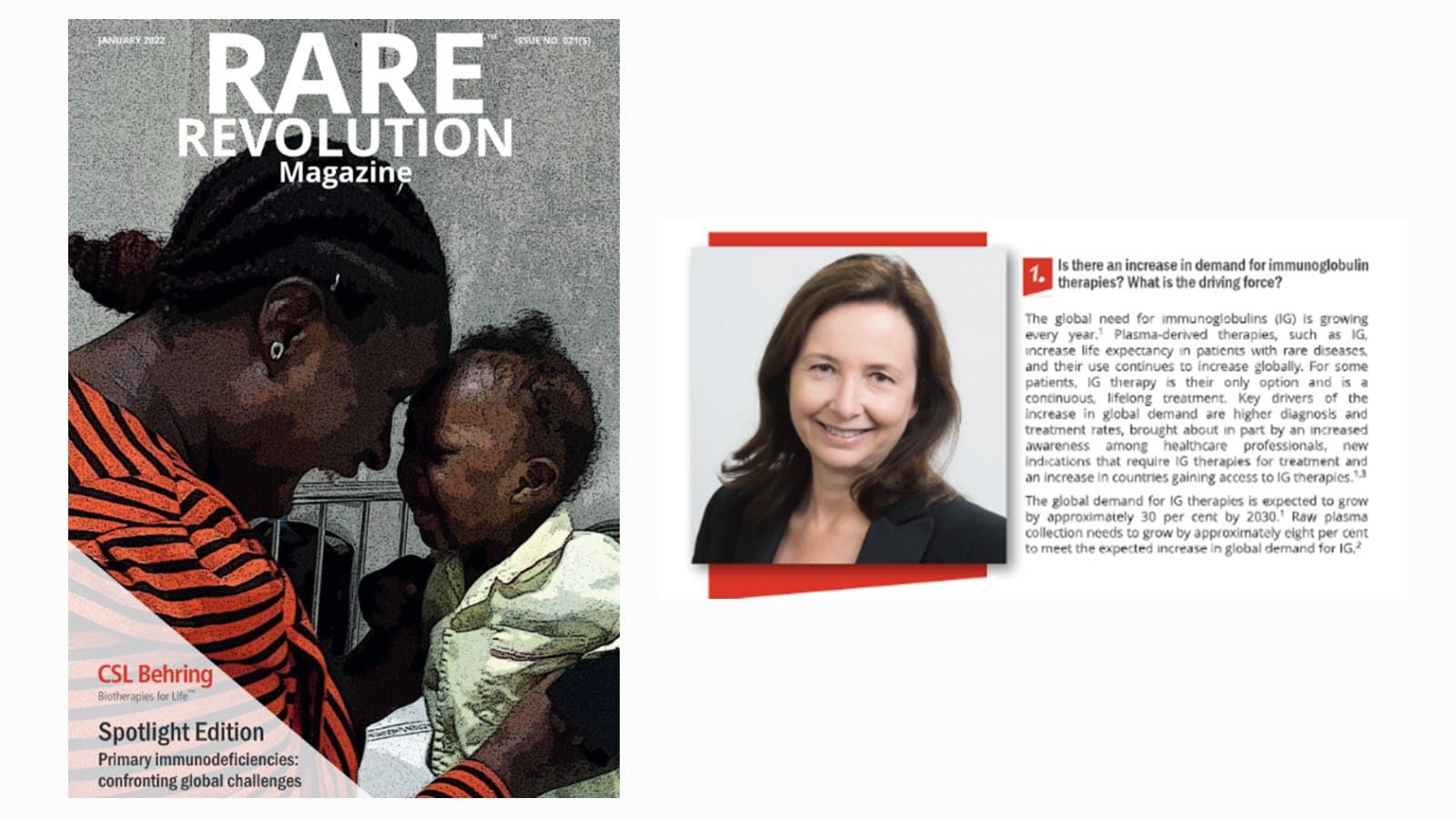Demand for immunoglobulin, derived from donations of blood plasma, grows every year. It reflects a heightened awareness among health care professionals who are diagnosing and treated an increasing number of patients who have rare diseases, said Camilla Shen, CSL Behring’s Executive Director for Eastern and Central Intercontinental, Commercial Operations.
Immunoglobulin, or Ig, is being authorized as a treatment for a growing number of conditions and more countries are giving patients access to it, Shen recently told Rare REVOLUTION magazine. Immunoglobulins, or antibodies, are Y-shaped proteins made by specialized cells of the immune system called B cells and plasma cells.
“The global demand for Ig therapies is expected to grow by approximately 30 percent by 2030,” she said.
And that means plasma collections must keep up at a rate of 8 percent more each year, Shen said. CSL Behring, a global biotech, makes medicines – including plasma-derived therapies like Ig – to help patients manage rare and serious diseases. CSL Plasma is among the world’s largest collectors of plasma and operates 300+ collection centers, most of which are in the United States.
See the full interview with Shen in RARE Revolution magazine.



